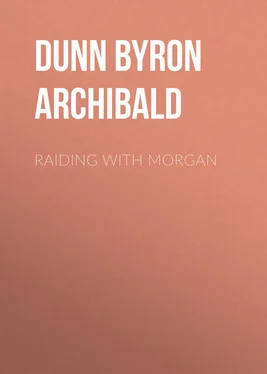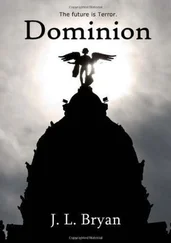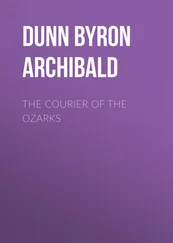Byron Dunn - Raiding with Morgan
Здесь есть возможность читать онлайн «Byron Dunn - Raiding with Morgan» — ознакомительный отрывок электронной книги совершенно бесплатно, а после прочтения отрывка купить полную версию. В некоторых случаях можно слушать аудио, скачать через торрент в формате fb2 и присутствует краткое содержание. Жанр: foreign_antique, foreign_prose, на английском языке. Описание произведения, (предисловие) а так же отзывы посетителей доступны на портале библиотеки ЛибКат.
- Название:Raiding with Morgan
- Автор:
- Жанр:
- Год:неизвестен
- ISBN:нет данных
- Рейтинг книги:5 / 5. Голосов: 1
-
Избранное:Добавить в избранное
- Отзывы:
-
Ваша оценка:
- 100
- 1
- 2
- 3
- 4
- 5
Raiding with Morgan: краткое содержание, описание и аннотация
Предлагаем к чтению аннотацию, описание, краткое содержание или предисловие (зависит от того, что написал сам автор книги «Raiding with Morgan»). Если вы не нашли необходимую информацию о книге — напишите в комментариях, мы постараемся отыскать её.
Raiding with Morgan — читать онлайн ознакомительный отрывок
Ниже представлен текст книги, разбитый по страницам. Система сохранения места последней прочитанной страницы, позволяет с удобством читать онлайн бесплатно книгу «Raiding with Morgan», без необходимости каждый раз заново искать на чём Вы остановились. Поставьте закладку, и сможете в любой момент перейти на страницу, на которой закончили чтение.
Интервал:
Закладка:
Byron A. Dunn
Raiding with Morgan
PREFACE
General John H. Morgan was one of the most picturesque figures in the Civil War, an officer without a peer in his chosen line. During the two years of his brilliant career he captured and paroled at least ten thousand Federal soldiers, and kept three times that number in the rear of the Federal army guarding communications. When we consider the millions of dollars’ worth of property he destroyed, and how he paralyzed the movements of Buell, we do not wonder that he was considered the scourge of the Army of the Cumberland.
General Morgan was a true Kentucky gentleman, and possessed one of the kindest of hearts. The thousands of persons captured by him almost invariably speak of the good treatment accorded them. The following incident reveals more clearly than words his generous spirit. In reporting a scout, he says:
“Stopped at a house where there was a sick Lincoln soldier, who died that night. No men being in the neighborhood, his wife having no person to make a coffin or bury him, I detailed some men, who made a coffin.”
The adventures of Calhoun as a secret agent of the “Knights of the Golden Circle” opens up a portion of the history of the Civil War which may be almost unknown to our younger readers. During the war the whole North was honeycombed with secret societies, whose members denounced Lincoln as a usurper and a bloody monster, and maintained that the government had no right to coerce the South. They resisted the draft, encouraged desertions, and embarrassed the Federal Government in every way possible. In secret many of the leaders plotted armed rebellion, the liberation of Confederate prisoners, and the burning of Northern cities. They held out inducements to the South to invade the North, and there is but little doubt that Morgan was lured to his destruction by their representations.
Shortly after the close of the war the author met a gentleman who had served on the staff of General Breckinridge. This officer affirmed that he carried a message from Breckinridge to Morgan, saying that the former had positive information that forty thousand armed “Knights” stood ready to assist Morgan if he would invade Indiana. Everything goes to show that Morgan relied on these reports, and it was this belief that induced him to disobey the orders of General Bragg.
It is an interesting question whether General Breckinridge was really privy to the plans of the “Knights,” and whether he secretly encouraged Morgan to disobey orders, hoping that the appearance of a Confederate force in the North would lead to the overthrow of the Lincoln Government and the independence of the South. The author has taken the ground that Breckinridge was fully cognizant of Morgan’s intended move.
This volume mentions only the greatest of the General’s raids, and the author has tried to narrate them with historical accuracy as regards time, place, and circumstances. In stating the number of his men, his losses, and the damage he inflicted on the Federals, the General’s own reports have been followed; these, as was to be expected, differ widely in many cases from those of the Federal officers.
The tale of the exploits of Calhoun is substantially true, though the hero himself is fictitious, for every one of his most notable feats was accomplished by one or other of Morgan’s men. It was Lieutenant Eastin, of Morgan’s command, who killed Colonel Halisy in single combat. Calhoun’s achievements in the escape from the Ohio Penitentiary were actually performed by two different persons: a sharp dining-room boy furnished the knives with which the prisoners dug their way to liberty; Captain Thomas H. Hines planned and carried to a successful termination the daring and ingenious escape. Captain Hines fled with General Morgan; and every adventure which befell Calhoun in “The Flight to the South” actually befell Captain Hines. The Captain’s marvellous story was published in the January number of “The Century,” 1891, and to this narrative the author is indebted for the leading facts.
B. A. Dunn. August 1, 1903.CHAPTER I.
AFTER SHILOH
The great battle of Shiloh had been fought, and victory had been snatched from the hands of the Confederates by the opportune arrival of Buell’s army.
The Southerners had lost their beloved commander, slain; a third of their number had fallen. Although defeated they had not been conquered. They had set forth from Corinth in the highest hopes, fully expecting to drive Grant’s army into the Tennessee River. This hope was almost realized, when it suddenly perished: twenty thousand fresh troops had arrived upon the field, and the Confederates were forced to retreat. But they had fallen back unmolested, for the Federal army had been too severely punished to think of pursuing. Both armies were willing to rest and have their decimated ranks filled with fresh troops.
Of all the Southern troops engaged at Shiloh none felt their defeat more keenly than the Kentucky brigade under the command of Colonel Trabue. They had fought as only brave men can fight; they left one-third of their number on the field, killed and wounded. Defeat could not demoralize them, and it fell to their lot to cover the retreat of Beauregard. They had stood like a wall of adamant between their fleeing army and the victorious Federals. No charge could pierce that line of heroes. With faces to the foe, they slowly fell back, contesting every inch of ground.
Fondly had they hoped that Grant would first be crushed, then Buell annihilated, and their march to Nashville would be unopposed. From Nashville it would be an easy matter to redeem their beloved Kentucky from the ruthless Northern invaders.
It was but a few days after the battle that there was a social gathering of Kentucky officers at the headquarters of General John C. Breckinridge. Conspicuous in that group of notable men was one whose insignia of office showed him to be only a captain. But he was already a marked man. He had greatly distinguished himself in Kentucky and Tennessee as a daring raider and scout, and at the battle of Shiloh he had rendered invaluable service at the head of a squadron of independent cavalry.
It was but natural that in such a gathering the situation would be freely discussed. “It looks to me,” said Breckinridge, with a sigh, “that if we are forced to give up Corinth, our cause in the West will be lost. I am in favor of holding Corinth to the last man.”
“What is your opinion, Morgan?” asked one of the officers, turning to the captain of whom we have spoken.
Thus addressed, John H. Morgan modestly answered: “The General will pardon me if I differ with him somewhat in his opinion. Corinth should be held, as long as that can be done with safety to the army. But Corinth itself is of little value to us, now that the railroad between here and Chattanooga is in the hands of the enemy. It is not worth the sacrifice of a hundred men.”
“What! would you give up Corinth without a struggle?” asked the officer, in surprise.
“Not if a battle offered a reasonable hope of victory,” replied Morgan. “What I mean is, that the place should not be held so long as to endanger the safety of the army. Corinth is nothing; the army is everything.”
“Then you believe, Captain, that Corinth could be lost, and our cause not greatly suffer?”
“Certainly. The further the enemy advances into the South, the more vulnerable he becomes. Even now, give me a thousand men, and I can keep forty thousand of the enemy busy protecting their lines of communication.”
“Morgan, you are joking!” exclaimed several of the officers.
“No joke about it. I expect to see old Kentucky before many days; and if I do, there will be consternation in the ranks of the Yankees.”
Читать дальшеИнтервал:
Закладка:
Похожие книги на «Raiding with Morgan»
Представляем Вашему вниманию похожие книги на «Raiding with Morgan» списком для выбора. Мы отобрали схожую по названию и смыслу литературу в надежде предоставить читателям больше вариантов отыскать новые, интересные, ещё непрочитанные произведения.
Обсуждение, отзывы о книге «Raiding with Morgan» и просто собственные мнения читателей. Оставьте ваши комментарии, напишите, что Вы думаете о произведении, его смысле или главных героях. Укажите что конкретно понравилось, а что нет, и почему Вы так считаете.












